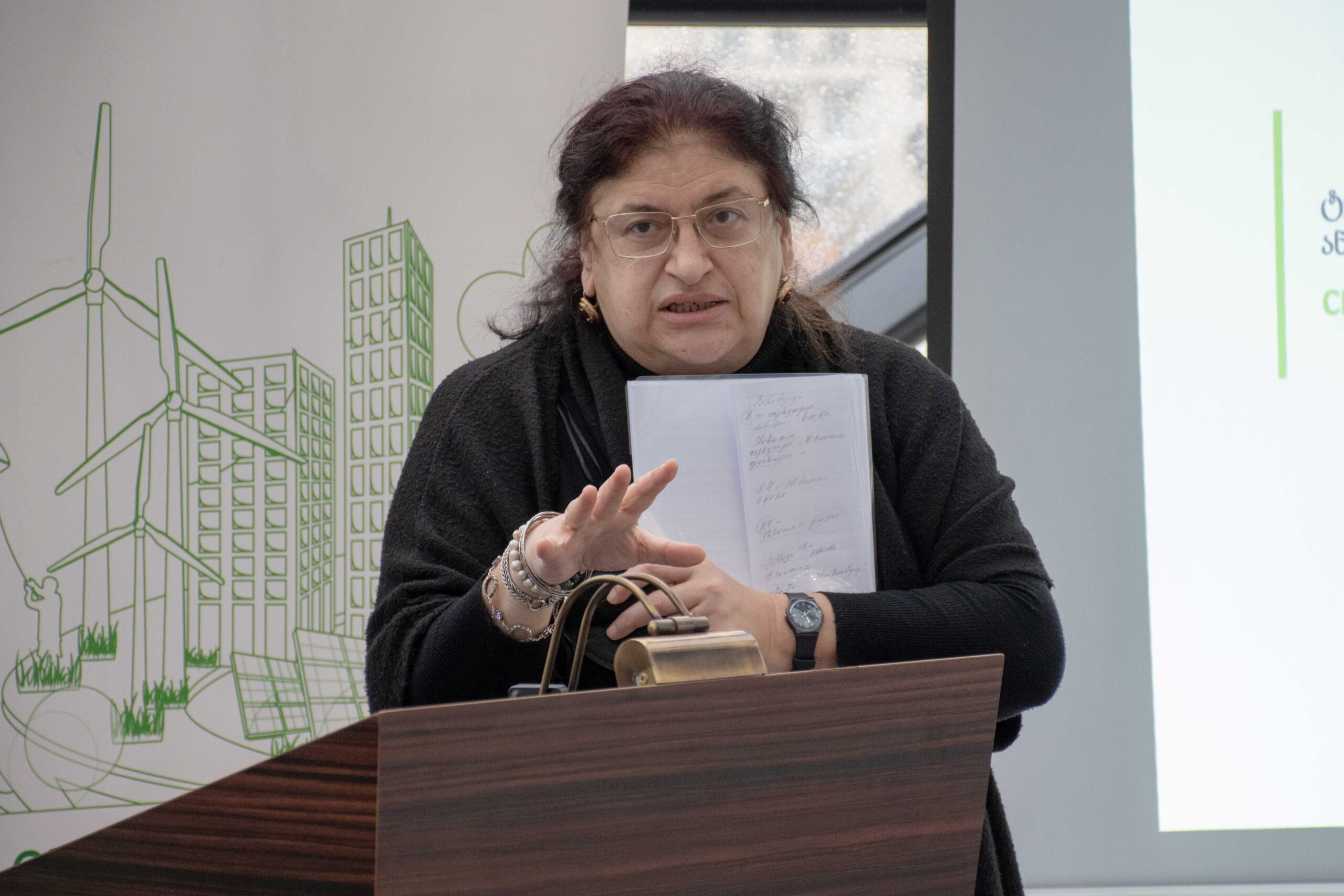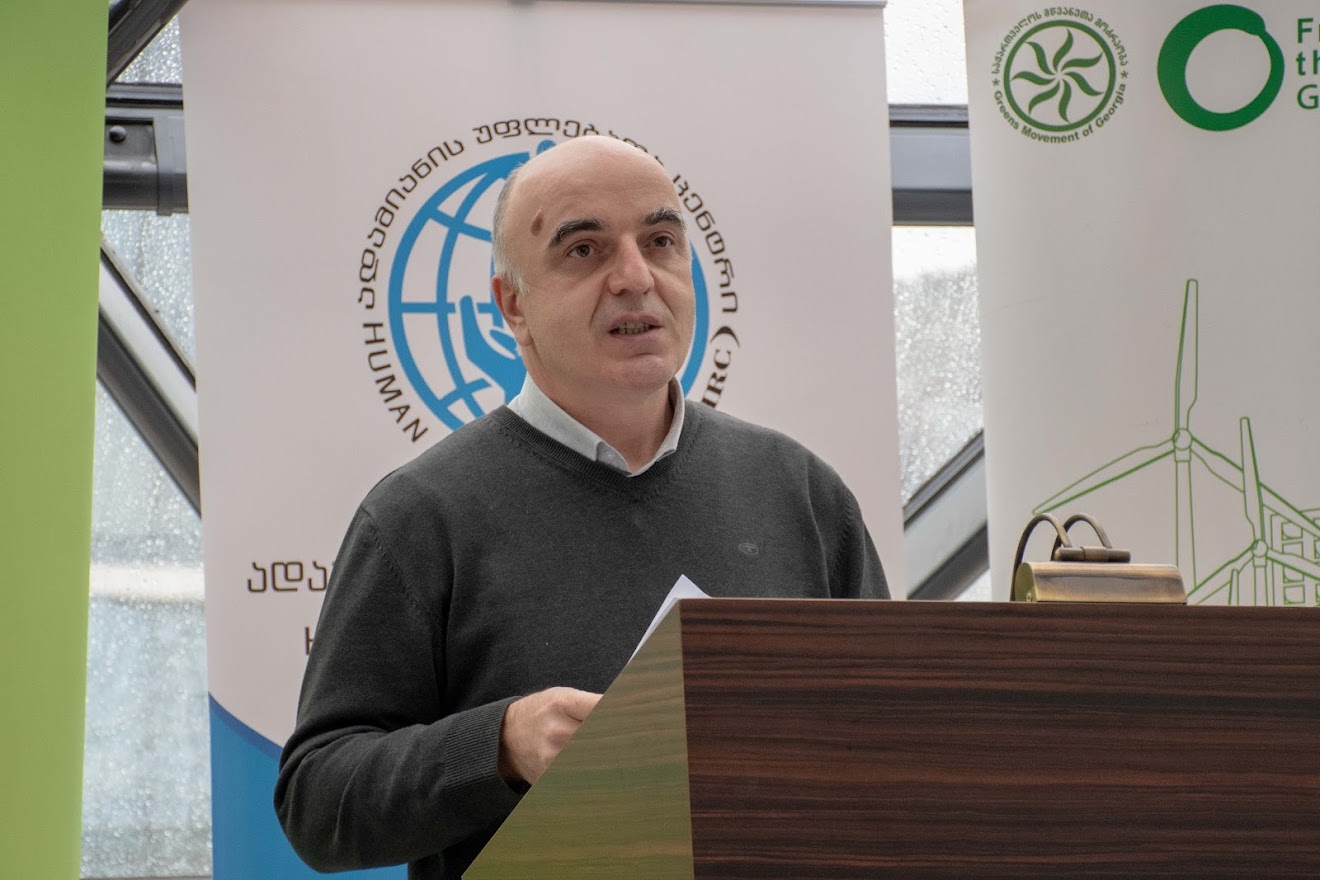
A new report from a coalition of environmental and rights groups casts doubt on Georgia’s recent commitment to sustainable forest management.
In a joint press conference on 26 November, the Caucasus Environmental NGO Network (CENN), Human Rights Centre, and the Green Movement of Georgia have reported that the Georgian Forest Fund has lost 500 km² of forested territory over the last five years.
The area is equal to more than half of the size of the Borjomi-Kharagauli National Park, the largest in Georgia.
The three organisations reported that, according to their joint study, between 2016-2021, 18,000 separate forest plots have been transferred from Georgia’s Forest Fund into private ownership, including businesses and the Patriarchate of Georgian Orthodox Church, and ownership by local municipalities. Since the transfer of ownership, ‘persistent’ felling of trees has been underway.
These plots reportedly included ‘ecosystems of high market value’, and their transfer allegedly circumvented Georgian laws that regulate forestry and the executive bodies responsible for enforcing them, primarily the Georgian Environmental Protection Ministry.
In their joint appeal, CENN, Human Rights Centre, and Green Movement of Georgia demanded Georgian authorities ‘immediate halt’ on delisting state-owned forests from the Forest Fund.
They also urged the lawmakers to come up with laws to curtail logging on forest lands already transferred to the private entities, ‘taking immediate steps’ to restore their forest status and appealed to all recently elected mayors to suspend and revise all their previous decisions.
OC Media reached out to the Environmental Protection Ministry and its National Forestry Agency for comment.

Degradation not reforestation
According to the report, forest area reductions that took place throughout the last five years are 12 times bigger than the area that Georgia had committed to restoring in the Nationally Determined Contribution document (NDC) following the 2015 Paris Agreement that Georgia joined in 2017.
‘We promised the international community to develop 4,000 hectares [40 square kilometres] of forest but we are degrading 50,000 hectares [50 square kilometres] of forest instead’, Nana Janashia, Executive Director of CENN, said during the press conference.
The Paris Agreement is a legally binding international climate change treaty based on the United Nations Framework Convention on Climate Change. Upon ratifying it, each country commits to following the individual NDC as its national agenda. Earlier this year, Georgia adopted an updated NDC.
According to the latest NDC, by 2030 Georgia committed to ‘maintaining and increasing the GHG [greenhouse gases] absorption and adaptation capacities of forests’ and by 2030, to ‘increasing the carbon capturing capacity through the forestry sector by 10% compared to the 2015 level’.
Policies aimed at scaling back deforestation and forest degradation activities are considered to be among the key priorities for the reduction of greenhouse gas emissions.
Last year, Georgia also adopted a new Forest Code that Environmental Protection and Agriculture Minister Levan Davitashvili promised would ‘support the ecological stability of forest ecosystems, enhance the socio-economic benefits for the public and reduce the pressure on forests’.

Social impact
The alleged mass reduction and unlawful appropriation of forests and their environmental degradation, Georgian green policy advocates warned on Friday, constituted a ‘profitless’, ‘unproductive squandering’ of public property ‘in detriment of Georgia’s economic development, including ecotourism’ and elevated risks for corruption.
Aleko Tskitishvili, Director of Human Rights Center, stressed that unlawful and mass forest privatisation directly led to the violation of the environmental rights of local residents.
Human Rights Center lawyers have reportedly challenged transfers greenlit by various local authorities throughout Georgia. However, due to protracted judicial proceedings, Tskitishvili said, they would ‘not be able to stop this process’.
He also warned that there was an upcoming initiative from the Parliamentary Committee on Environment and Natural Resources mulling amending Article 13 of the Forest Code of Georgia that could allow stripping a plot of its forest status if an investor proposes to develop it for ‘resort and recreational purposes’.
‘This is an additional threat […] that would lead to additional delisting of areas from Forest Fund’, Tskitishvili stressed.









